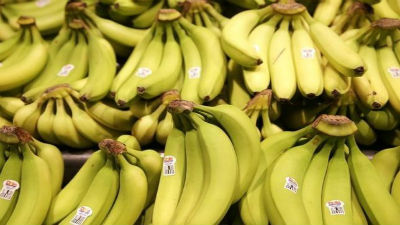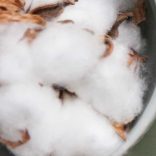Mozambique: New factory in Gurue will end dependence on imported animal feed
Highlights:
One of the main ways that they're trying to overcome this disease now is to move to a different cultivar of bananas
Banana fungal disease from Mozambique could threaten SA crops

Reuters (File) / Various governments in southern Africa are aware of the fungus and are working together to try and find a solution
Banana farmers in South Africa are concerned about the spread of a fungal disease or panama disease that has been present in northern Mozambique for the past few years.
Should this soil-borne fungus be transferred to South Africa, it could put the whole banana industry at risk. Mpumalanga is well-known for its tropical fruits and bananas are one of the main crops grown throughout the Lowveld area.
If the banana farms are affected by a plant fungus, it will be fungal disease, it would be a major blow to the growers industry in this area.
Banana farmers are concerned about a soil borne fungus strain, Tropical Race 4 or TR4 that could be brought into South Africa.
Professor of the Department of Plant pathology of the University of Stellenbosch, Altus Viljoen is actively involved in the study of these kinds of diseases in bananas.
“The Panama Disease fungus consists of about three different races which is quite important to know. So there’s one that’s occurring in Central America and up in the northern part of Africa or the central parts of Africa, and then there’s the one that was always present in South Africa for many years now already. That strain is called the Sub-Tropical Race 4. That means it’s actually attacking Cavendish bananas under sub-tropical conditions. So the plant really needs to have some kind of stress situation for the fungus to cause severe damage to it.”
Viljoen says they have been monitoring the various TR4 strains over the past couple of years. “The new one, the TR 4, the Tropical Race 4, is one that was basically limited to Asia for about 20 years, and that is now spreading to other parts of the world, and that is the one that has been introduced in the northern part of Mozambique now, that is a very severe one, simply because this strain does not need any stress situation on the banana plant it can simply affect it under all different conditions.”
He says, “The disease was first seen in 2013 and then we did the identifications for them around June in 2013, and it spreads really rapidly. So we actually believe it was introduced maybe two or three years before the symptoms became so visible.”
Viljoen says although the fungus causes the banana plant to die, the fruit is still fine for human consumption. He says the great concern at this point is curbing its spread.
“It needs to spread in one of two ways. It’s either in the plant material itself that’s already infected and that’s the way the Panama Disease has been spread around the world, simply because people planted plant material from existing plantations. The other way is that it spreads in soil and this soil is then attached to cars or it’s attached to people shoes or something.”
Viljoen says the Mozambican government has already quarantined the movement of banana plant materials in northern Mozambique. Umbahah Estates is a large banana grower in the Hazyview and Komatipoort area.
CEO of Umbhaba Estates, Roy Plath, says they are very concerned that this fungus might be transferred to South Africa. He says research is being done to try and find a way to manage this fungus and stop it from spreading.
“One of the main ways that they’re trying to overcome this disease now is to move to a different cultivar of bananas. So they’re looking to breed banana plants that have a resistance naturally to the soil fungus. So at the moment our whole banana group of cultivars is from a Cavendish and so there are other groups that one could breed a different strain of bananas from, but the whole world relies on strains of the Cavendish group of bananas, which is now so susceptible to demise through this fungus in the soil.”
Plath says ultimately a decision must be taken to try and stop South African banana trees from being infected. “It would be correct to seriously look at stopping the import of bananas and traffic from those areas down towards our areas for definite. I mean that’s the only it seems and even though it seems harsh it is the only way now.”
Viljoen says various governments in southern Africa are aware of the fungus and are working together to try and find a solution.












Leave a Reply
Be the First to Comment!
You must be logged in to post a comment.
You must be logged in to post a comment.